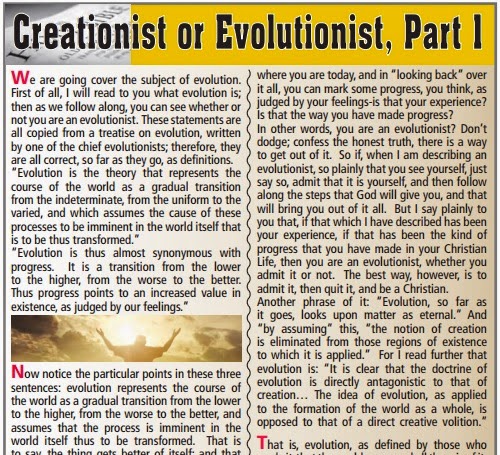 As all Dr Seuss fans, past and present, know; it was the Grinch who stole Christmas.
As all Dr Seuss fans, past and present, know; it was the Grinch who stole Christmas.But there have always been oddball Christians, usually inheritors of thin-lipped, bloodless Puritanism, who have condemned the seasonal frivolities. Then there are literal-minded folk for whom Christmas is not so much frivolous in the Scrooge sense, but just plain pagan to the core.
Amongst these sects, the various Sabbath-keeping Churches of God stand out. Unlike Jehovah's Witnesses these bodies (there are a plethora of feuding variations) have substituted faux Old Testament Holy Days - radically re-engineered from their Hebrew roots - for the traditional liturgical calendar that includes Easter (pagan!), Lent (pagan!) and, of course, Christmas.
Selling an anti-Xmas message is no easy thing. It's a bit like making nasty comments about "Mom and apple pie". But it does serve a very real social function in putting real kinship ties under pressure (yup, that's 'Mom' and the extended family outside the faith community) and shoring up the fictive kinship bonds among insiders - 'the brethren'. No more exchanging gifts or taking the kids around to the grandparent's place on Xmas Day. No special Christmas meals, coloured lights, Secret Santa, decorations or greeting cards. Pagan!
(And considering today is October 31, let's not even get started on what these folk make of Halloween!)
So how do you put a positive spin on something like that? The current issue of Discern - published by one of the more hardline COG sects - tackles the task manfully.
- Editor Clyde Kilough brags about "50 Years Without Christmas".
- Erik Jones writes about "Jesus Christ vs. Christmas" and "Christmas Versus The Bible".
 Other competing COG ministries will very soon be joining in the yowling Grinch-like chorus if past years are anything to go by.
Other competing COG ministries will very soon be joining in the yowling Grinch-like chorus if past years are anything to go by.
Of course much of the commercial Christmas experience is kitschy, and there's no doubt that a lot of people get sucked into a debt vortex by unnecessary seasonal expenses. And, at the risk of sounding like a Discern article, a lot of the religious trappings aren't much better.
Kilough and Jones will make those same points, but that's not their chief beef with Xmas. They're against it in principle because they read the Bible like Auntie Ruby reads the assembly instructions for Ikea furniture.
The thing is, those so-called 'biblical festivals' which Clyde and Erik champion have their roots in Near Eastern agricultural fertility festivals that pre-date the oldest parts of the Bible. They were adapted into Second Temple Judaism in the same way similarly colourful European customs were later reinvented as Christian celebrations.
And so, you've got to ask, why not eggnog? What's the difference?















